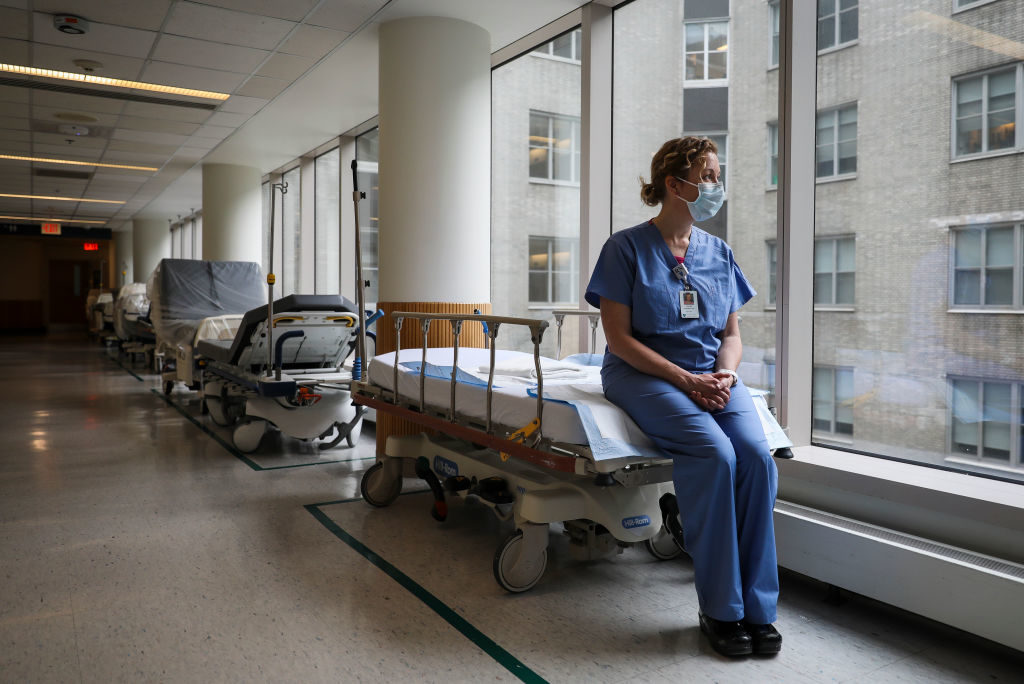Managing Mental Health During COVID-19
For healthcare providers around the globe, the start of 2020 means “work” as we once knew it has changed forever. Healthcare providers and other hospital and clinic staff are on the front lines of the COVID-19 pandemic, being stretched to extremes most of us have never experienced. There are the physical risks: Shortages of protective equipment, continued viral exposure for themselves and their families, the sheer exhaustion of working continuous overtime to meet demand. But there are also the emotional risks. Here are concrete strategies to help manage stress during this challenging time.
Anxious or worried?
Increased anxiety is common as we navigate COVID-19 and its broad consequences. Patient care and uncertainty about health outcomes, finances, childcare, travel and scheduled events are highly stressful. Action is one of the best treatments for anxiety. Share your concerns and problem solve with colleagues, clinical team members, family and friends to plan coping steps.
In fact, Headspace, an app that provides guided meditations, is offering all U.S. healthcare professionals who work in public health settings free access to Headspace Plus through 2020.
Pace yourself
Monitor yourself for disrupted sleep, excessive fatigue, irritability, poor focus and marked anxiety. If we run on empty, we can’t care for our patients, families or communities. Our work is a marathon, not a race.
Breathe
Try mindful breathing several times a day. Take a moment for low and slow breaths before getting out of the car, when you enter your work area, and prior to entering a patient room or a procedure. Breathing helps us to calm down and improves our concentration.
Maintain good health habits
As stress and demands increase, health habits often take a hit. Bring your meals to work to maximize healthy eating, limit alcohol and THC use, try to get enough sleep, prioritize aerobic exercise and get some sunlight. Resist the temptation to say “there isn’t time”, and become an expert at carving out moments just for you.
Exercise, exercise, exercise
Put into practice strategies that have worked for you in the past during times of stress. Aerobic exercise is vital for stress reduction. Consider walking, biking, running and hiking, throwing a Frisbee or ball as well as exercise and yoga videos. For home exercise and yoga videos see: Fitness Blender and Yoga with Adriene. A short aerobic walk or workout is better than nothing.
Connect & connect, but remember to take breaks!
Reach out to family, friends, colleagues and your favorite community groups for social contact during the COVID-19 crisis. Call, Facetime, Zoom, Skype or try Google Hangouts to reduce your isolation. Meaningful and fun connection, emotional support and healthy problem solving are vital to your health and well-being. Consider joining another family or friend for a meal by social media to reduce isolation for everyone.
On the other hand, consider making a regular habit of stepping away from your computer and smart phone from time-to-time. When returning online, focus on information from reputable sources, not just sources in your social media feed. You don’t have to take in everything produced by a 24/7 news cycle.
Take breaks at work and at home
Work with your team to take mini breaks. Even a 10-minute walk during your shift is calming and improves vital energy and focus. Plan down time at home. Exercise, a good book, movie, or podcast, games with your family, and mindfulness techniques help us refuel physically and emotionally.
Promote teamwork
If you have children or relatives who need care, let your team leadership know ASAP. Ask if your health system has developed plans to assist with family responsibilities.
Maintain structure at home
If you or your children are working from home, establish a consistent workspace to help with focus and productivity. Plan breaks as well.
Flexibility is essential
Increased demand for care, social distancing and other unique stressors will test our flexibility and adaptability. We will all have to practice outside of the box—especially when things go wrong and are chaotic. It’s OK. Ask for support, evaluate, modify and move forward.
When able and within applicable legal limits, rotate workers from higher-stress to lower-stress functions. Partner inexperienced workers with more experienced colleagues, who can provide support, monitor stress and reinforce safety practices. Implement flexible schedules for workers who are directly impacted or have a family member impacted by the COVID-19 outbreak.
Source: American Psychological Association Services, Inc.
Photo Source: Getty Images

